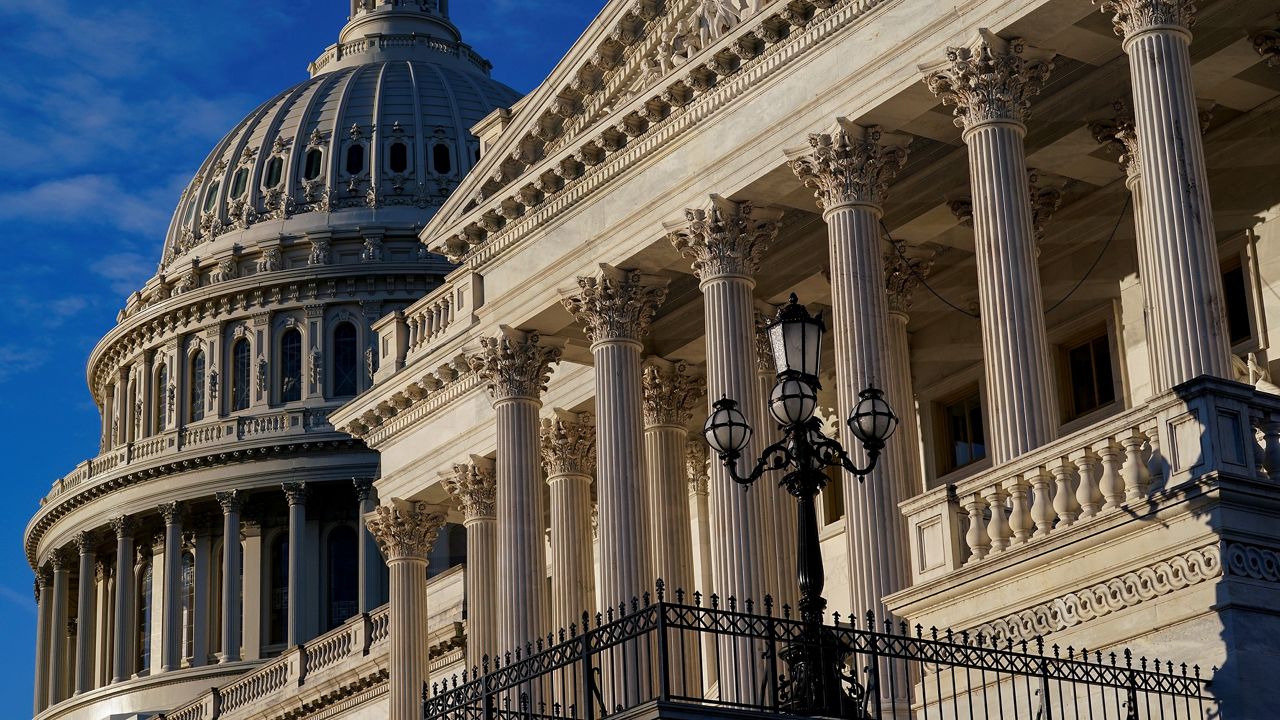The Senate on Thursday voted 72-25 to pass a short-term funding measure, sending the bill to the House ahead of Friday’s deadline to avert a government shutdown.
The bill, also known as a Continuing Resolution, includes approximately $12 billion in assistance to Ukraine — including, notably, $35 million “to prepare for and respond to potential nuclear and radiological incidents in Ukraine,” according to a fact sheet released by lawmakers — as well as $20 million in emergency funding to address the water crisis in Jackson, Miss., $2.5 billion for recovery efforts from New Mexico’s Hermit’s Peak/Calf Canyon fire and $1 billion for the Low-Income Home Energy Assistance Program.
“Seven months since the conflict began, it’s crystal clear that American assistance has gone a long way to helping the Ukrainian people resist [Russian President Vladimir] Putin’s evil, vicious aggression,” said Senate Majority Leader Chuck Schumer, D-N.Y. “But the fight is far from over.”
Republican leader Mitch McConnell also voiced support for the Ukraine aid, calling on the Biden administration to get the funding out faster.
“Assisting Ukraine is not some feel-good, symbolic gesture,” McConnell said. “It’s literally an investment in our own national security and that of our allies.”
It also includes funding for resettlement of Afghan refugees and a five-year extension of FDA user fees, which ensures the agency can continue critical product safety reviews and won’t need to issue pink slips for thousands of employees working on drug and medical device applications. An additional $18.8 billion was included for the Federal Emergency Management Agency to respond to current and future disasters, such as Hurricane Ian, which hit Florida on Wednesday.
The House must now vote on the bill in order to send it to President Joe Biden’s desk ahead of a midnight shutdown deadline Friday. The CR would keep the government funded through Dec. 16, after the midterm elections in November, buying lawmakers more time to come to an accord on a long-term funding measure.
The bill advanced Tuesday in a procedural vote, following the removal of a controversial energy permitting reform provision backed by West Virginia Sen. Joe Manchin.
The permitting reform proposal — part of an accord reached by Manchin and Senate Majority Leader Chuck Schumer, D-N.Y., to secure his support for the Inflation Reduction Act, Democrats’ sweeping health care, climate change and tax reform bill — was opposed by an unlikely coalition of progressive Democrats and Republicans.
“It is unfortunate that members of the United States Senate are allowing politics to put the energy security of our nation at risk,” Manchin lamented in a statement explaining why he asked Schumer to remove the provision. “A failed vote on something as critical as comprehensive permitting reform only serves to embolden leaders like [Russian President Vladimir] Putin who wish to see America fail.”
After the permitting reform provision was removed, Tuesday’s widely bipartisan 72-23 procedural vote signaled that the CR would easily sail through the chamber on Thursday.
One thing missing from the bill is the billions of dollars in additional funding that President Joe Biden sought to aid the response to COVID-19 and monkeypox. Republicans criticized the health spending as unnecessary. The White House said the money would have been used to accelerate the research and development of vaccines and therapeutics, prepare for future COVID variants and support the global response.
The bill’s passage is the last must-do item on lawmakers’ list before returning to their home states and districts to campaign before the mid-term elections that will determine which party controls the House and Senate over the next two years. Lawmakers were anxious to get out of Washington and focus on campaigning without the specter of a shutdown.
“The last thing the American people need right now is a pointless government shutdown,” Schumer said.



